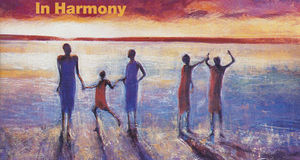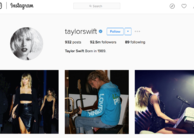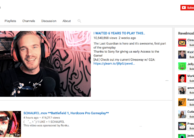The Apparition of Fading Apartheid: Racialized Vision, Khaya Mthethwa, and Idols SA
By
2013, Vol. 5 No. 03 | pg. 2/2 | « The rationale of popular discourse is that if Mthethwa has won Idols SA it is because black voters have made that possible, and because this voting requires money, technology, and access, their class and wealth are not at issue. Only his race is at issue. And this is the purpose of the spectacle and commodity fetishism: it shows consumers that racialized social problem are solvable, but issues concerning class conflicts and divides are omitted; they are “rigidly distinguished from what is possible” (Debord, 1983, p. 20), so that they persist. In this sense, the commodity fetishism of Mthethwa’s spectacle tramples the real world: instead of attending to the real class issues of apartheid, issues of racism can be solved in the reality of commodified televisual images (p. 26). Idols SA and other media institutions produce commodified spectacles of discourse from which reality and knowledge tell viewers that Mthethwa’s race is paramount to this issue. It thus reasserts the domination of racialized vision that marks the blackness of his race as central to a problem that necessitates fixing, allowing people to consume this commodity as an illusion (p. 32) while avoiding the real issues of class conflict and division. The Political Economy of Labour in Idols SAMoreover, Mthethwa’s race and its social implications in commodity fetishism discourse act as alternate realities to detract one from how this globalized reality TV format continues to exploit cheap labour and utilize free and paying labour. Idols SA is part of a reality TV genre that hires non-professional actors and needs not hire professional script writers, so as not to pay the high costs of union labour (Ross, 2013). It is the ability of reality TV to reduce production costs and to subsequently produce extremely high ratings and profits that results in exploitative working conditions (p. 300). Therefore, labour-power is exploited by the institutional framework of Idols SA and fails to pay the higher wages of unionized workers. On the other hand, Idols SA also employs their audience as free labour, which in the particular context of Mthethwa, is to have black South Africans perform labour by watching: M-Net both commodifies the access to the audience for advertisers and the ratings which they negotiate for sale to advertisers for that initial access. The slave labour of colonialism has transitioned to the free, paying labour model of Idols SA for black South Africans.Mthethwa’s win depends on their text-votes as part of the show’s audience to achieve their desired outcome within Idols SA’s “democratic” framework. By having to purchase one’s vote, this also reinforces false democratic ideas and questions the legitimacy of Mthethwa’s win. The argument could be made that Mthethwa’s win is tokenistic since Idols SA has yet to crown a black winner, and having him win means that black South Africans would provide free labour by being a part of the audience, commodified and sold to advertisers, and also pay the show and M-Net through their text-messages votes, resulting in large amounts of profit. Thus not only does Mthethwa’s win illustrate some speculative type of racial equality but it also reproduces the capitalist profit motive. And, as an “amateur contestant,” Mthethwa will see some monies from the show but also from his later endorsements and musical opportunities, which are indicative of the “neoliberal ethos of the jackpot economy” (Ross, 2013, p. 300). For Debord, the spectacle is predetermined and easily creates the conditions under which people are anesthetized to how power operates: this spectacle mobilizes affective narratives with exploitative practices that operate along the lines of racialized vision which prey on the naivety of viewers to doubly exploit their audience labour. Forms of Resistance: The (Hyper) Reality of Racial RepairForms of domination and resistance are not fixed but fluid. Forms of resistance to racialized vision and bodies over the eight seasons of Idols SA range from allegations of “vote-rigging and racism” to black celebrities asking other black viewers to vote for Mthethwa. In season six, Mara Louw, a former Idols SA judge, argued that DStv’s practices were racist as the digital satellite service for Idols SA is too expensive for many black South Africans, so they cannot vote, and “whites refuse to vote for blacks” (“South Africa Has a Black ‘Idol’,” 2012). However, these forms of resistance to a racialized form of vision and biopower are not effective enough, as they continue to operate within the context of the spectacle. bell hooks (2009) argued that true resistance could be found in the “critical gaze” through opposition and resistance: a political looking relationship for black females to regain their autonomy (p. 463). For viewers of Idols SA, their ability to “stop looking” is a form of resistance which negates the show’s racialized form of vision (p. 466). But, there is also the option to look oppositionally “past race and gender” at the form of the visual content to critically read it as a text for its conventions (p. 466). Beyond this text is its political economic characteristic of having a commercial relationship to advertising. Idols SA is constructed for and by the white gaze to produce viewing pleasure for its primary audience, so that a white audience can vote for candidates to reinforce the bodily markers of “success,” white skin, or when crowing a brown winner, reflect racial equality, tolerance, and progress. Secondly, as the wealthy white middle class comprise the majority of voters, they compose financially viable audience to which advertisers desire access. The representations that Idols SA mediates are concerned with appeasing advertisers, producing a desirable audience, and generating profits. Thus, hooks’ “critical gaze” (2009) enables one to looks beyond the spectacle of the black racialized body to see more than just “race and gender” (p. 466). Political economic analysis is essential to understand the operations of social power in globalized mass media which disseminate ideas about race in post-colonial nations and presents forms of resistance to allow for critical public engagement and debate to actually heal the always open wound of apartheid. ConclusionPersisting through colonialism and apartheid, racialized vision still exists in globalized reality TV and South Africa. As a case study, Idols SA and Mthethwa’s victory have proved how visual culture can dismantle the social constructions of vision to expose not only the ways in which the commodification of images engender racialized bodies but also the ways in which imagistic commodities obscure the economic, colonial, and institutional conditions that give rise to them. The “reality” of Mthethwa as the winner of season eight of Idols SA is a mere commodification of racial progress that allowed for an exploitation of cheap labour and free and paying audience labour to further perpetuate class difference that propound racialized vision and bodies. There is still, however, forms of opposition that, if used, can result in real social change, not “real” social change. ReferencesBeinart, W., & Dubow, S. (1995). Segregation and Apartheid in Twentieth Century South Africa. London, GBR: Routledge. Debord, G. (1983). The society of the spectacle. Detroit: Black & Red. hooks, b. (2009). The Oppositional Gaze: Black Female Spectators. In S. Thornham, C. Bassett & P. Marris (Eds.), Media studies: A reader (pp. 462-470). New York: New York UP. Horwitz, R. (2001). ‘Negotiated Liberalization’: The Politics of Communications Sector Reform in South Africa. In N. Morris & S. Waibord (Eds.), Media and Globalization: Why the State Matters. Oxford. Marx, K. (1976). Capital: a critique of political economy. Harmondsworth, Eng: Penguin Books. McClintock, A. (2009). Soft-Soaping empire: Commodity racism and imperial advertising. In S. Thornham, C. Bassett & P. Marris (Eds.), Media studies: A reader (pp. 747-762). New York: New York UP. Mirzoeff, N. (2013). The sea and the land: Biopower and visuality from slavery to Katrina. In N. Mirzoeff (Ed.), The visual culture reader (pp. 132-147). New York: Routledge. Ndlovu, A. (2012, October 2). 'Race' heats up in Idols final. Times Live. Retrieved from: http://www.timeslive.co.za/thetimes/2012/10/02/race-heats-up-in-idols-final. NewAgeOnline. (2012, October 3). Khaya Mthethwa wins Idols SA season 8 [Video file]. Retrieved from https://www.youtube.com/watch?v=Y7_x4DTc98Q. Polgreen, L. (2012, October 8). South Africa Has a Black ‘Idol.’ The Surprise Is That It’s a First. The New York Times. Retrieved from: http://www.nytimes.com/2012/10/09/world/africa/south-africa-reflects-on-black-singer-khaya-mthethwas-idols-sa-victory.html?pagewanted=all&_r=2&. Ross, A. (2013). Creativity and the problem of free labor. . In N. Mirzoeff (Ed.), The visual culture reader (pp. 296-306). New York: Routledge. Seekings, J. (2003). Social stratification and inequality in South Africa at the end of apartheid. Centre for Social Science Research. Cape Town: by the Centre for Social Science Research University of Cape Town. Retrieved from: http://cssr.uct.ac.za/publications/working-paper/2003/social-stratification-and-inequality-south Smith, D. (2012, October 3). Idols South Africa crown first black winner. The Guardian. Retrieved from http://www.guardian.co.uk/world/2012/oct/03/black-winner-south-africa-idols. Suggested Reading from Inquiries Journal
Inquiries Journal provides undergraduate and graduate students around the world a platform for the wide dissemination of academic work over a range of core disciplines. Representing the work of students from hundreds of institutions around the globe, Inquiries Journal's large database of academic articles is completely free. Learn more | Blog | Submit Latest in Business & Communications |


















